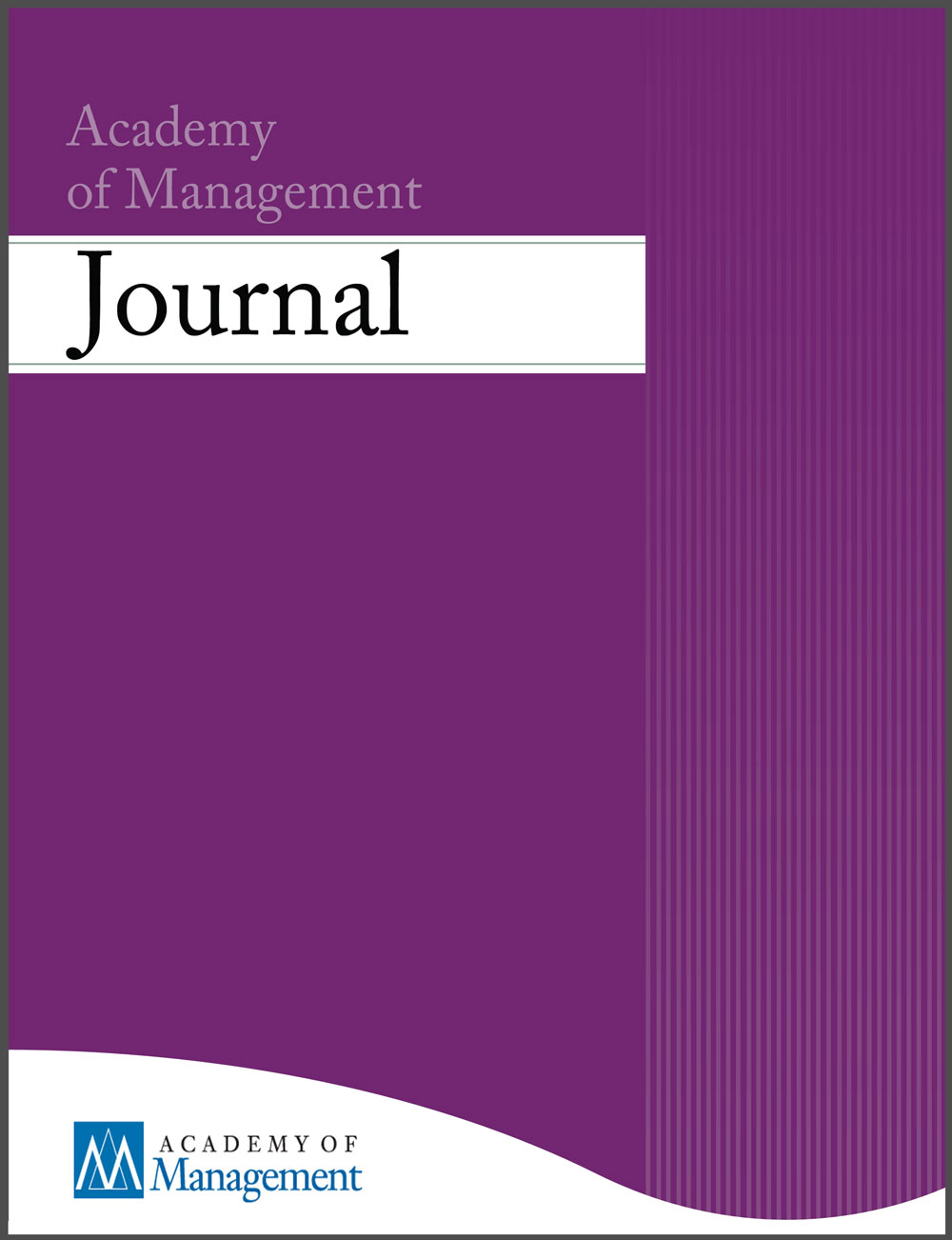空间和关系嵌入的悖论:失信后的纽带再启动
IF 10.5
1区 管理学
Q1 BUSINESS
引用次数: 0
摘要
当信任受到侵犯时,嵌入性--空间和关系--如何影响公司间纽带的重新建立?当出现失信行为时,先前联系与重复建立联系之间理所当然的关系就变得复杂了。这就出现了两种不同的观点:一种是 "嵌入性作为缓冲 "的逻辑,即嵌入的合作伙伴可能会更加宽容;另一种是 "等等布鲁特 "的逻辑,即嵌入的合作伙伴会感到被背叛。我们通过研究经纪关系来解决这一理论矛盾。当空间或关系嵌入时,焦点公司与经纪人之间的联系会进一步增强信任,但随之而来的更高期望也会使嵌入式信任因经纪人的忠诚分歧而变得更加脆弱,从而导致信任在违约后急剧下降。因此,我们的核心假设凸显了嵌入式信任的悖论:在正常情况下,空间信任和关系信任会促进重复联系,但当信任受到侵犯时,这种嵌入式联系需要更长的时间才能重新启动。我们使用了全球干货航运业手工收集的独特数据集,其中包含一家位于哥本哈根的船东-运营商(焦点公司)与 235 名船舶经纪人之间从 2011 年到 2018 年的 3,618 次航次数据,并使用了 Weibull 危险率估算器。我们发现,当经纪关系中的信任遭到破坏时,嵌入性悖论得到了支持。本文章由计算机程序翻译,如有差异,请以英文原文为准。
The Paradox of Spatial and Relational Embeddedness: Tie Reinitiation after a Trust Violation
How does embeddedness—spatial and relational—influence interfirm tie reinitiation when trust is violated? The taken-for-granted relationship between prior ties and repeat tie formation becomes complex when trust violations are introduced. Two divergent schools of thought emerge: an “embeddedness as a buffer” logic, wherein embedded partners may be more forgiving, versus an “et tu Brute” logic, wherein embedded partners feel betrayed. We tackle this theoretical tension by examining brokerage relationships. When spatially or relationally embedded, focal firm–broker ties further enhance trust but the ensuing higher expectations also make embedded trust more brittle due to the broker’s divided loyalties, resulting in a steeper decline in trust after a violation. Our central hypotheses thus highlight a paradox of embeddedness: while spatial and relational trust foster repeat ties under normal circumstances, it takes proportionately longer for such embedded ties to be reinitiated when trust is violated. We use a unique hand-collected data set in the global dry cargo shipping industry with voyage-level data on 3,618 exchanges between a Copenhagen-based shipowner–operator (the focal firm) and 235 shipbrokers from 2011 to 2018 and a Weibull hazard rate estimator. We find support for the paradox of embeddedness when trust is violated in brokerage relationships.
求助全文
通过发布文献求助,成功后即可免费获取论文全文。
去求助
来源期刊

Academy of Management Journal
Multiple-
CiteScore
16.00
自引率
5.70%
发文量
99
期刊介绍:
The mission of the Academy of Management Journal (AMJ) is to disseminate empirical research that rigorously tests, extends, or constructs management theory while enhancing management practice. The journal welcomes diverse empirical methods, including qualitative, quantitative, field, laboratory, meta-analytic, and mixed methods. For publication in AMJ, research must exhibit robust empirical and theoretical contributions, with manuscripts emphasizing the practical relevance of these contributions to management practice. Authors are encouraged to craft original, insightful, interesting, and theoretically bold research that makes a substantial "value-added" contribution to the field's comprehension of a given issue or topic.
 求助内容:
求助内容: 应助结果提醒方式:
应助结果提醒方式:


